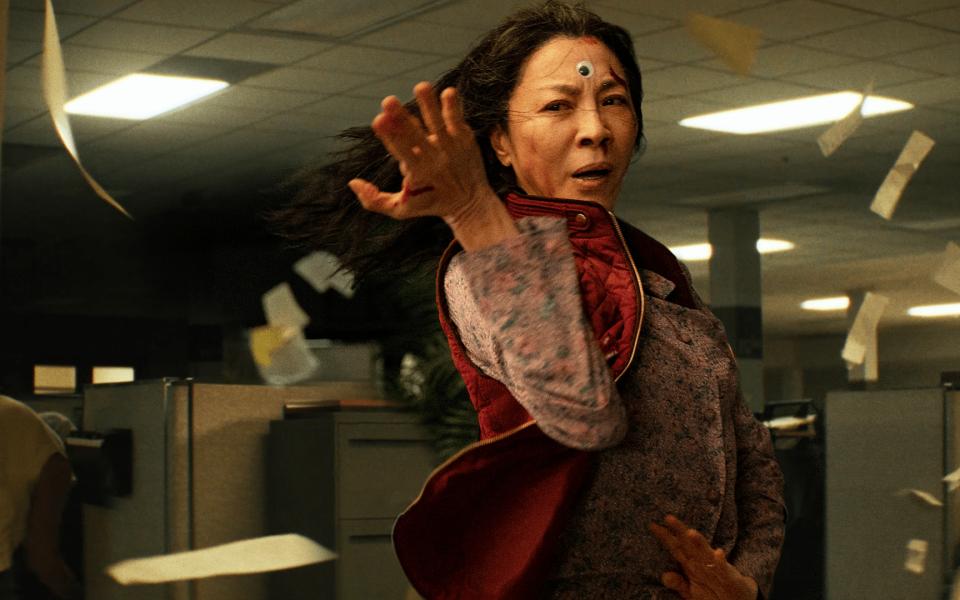I often hated being Asian as a child. I resented the way my hair fell, the slant of my eyes, the tone of my skin, the syllables of my name, the scent of my food.
So on Sunday, to watch a predominantly Asian cast and a film about the Asian-American immigrant experience win the biggest awards in filmmaking was nothing short of overwhelming. It’s the most I’ve cried watching an awards ceremony.
The first time I watched Everything Everywhere All At Once, I left the theater speechless. It was the kind of film that made me feel like I had seen something brand new — something so innovative, so interesting, so different, it made me feel like movies and the film industry could still push the boundaries of the art.
And yet, in so many other ways, the film was familiar.
For those who haven’t seen it, the film follows the story of Evelyn Quan Wang, a middle-aged Chinese American immigrant woman who, throughout the course of the film, reminisces on the choices she’s made in her life and the ones she didn’t. She mourns the loss of lives she could have lived while fighting hard to fix the life she has with her husband and daughter.
It’s a story that many immigrant kids and parents can relate to, one of struggle, sacrifice and the reality that results from years of never being the main character in your own story.
And that’s how I felt for years, too. In the last decade or so, I’ve come to fully embrace and love my identity as a Japanese-American woman. Part of that healing was realizing the reason for my trauma and dissonance with my being.
The country that I grew up in, this country, the media I consumed, the friends I made, never really reflected my personal experience as an Asian-American woman. And I’m sure there are other young Asian kids out there who are going through that same struggle now.
But on Sunday, as Ke Huy Quan accepted his award for Best Supporting Actor, he reiterated the message he’s been spreading since the film gained wider recognition.
“Dreams are something you have to believe in,” Quan said. “I almost gave up on mine. To all of you out there, please keep your dreams alive. Thank you, thank you so much for welcoming me back. I love you.”
It’s been constantly reported that Quan gave up on acting after a vibrant career as a child actor, starring in films like Indiana Jones and the Temple of Doom and The Goonies. In interviews, he’s talked about the lack of roles for Asian men like him in the last 30 years. And it almost ended his career.
But Quan’s win isn’t just about people following their dreams in terms of career paths. It’s an acknowledgement that we belong here. That we are beautiful. That we are powerful. Our stories are invaluable. And that, I think, is the manifestation of one of my oldest dreams: to be truly seen.
There’s a long way to go, and awards shows shouldn’t be what moves the needle, but in this moment, I’m going to take this as a win and hope that it’s spreading self love to all of the people who look like me and Quan and Yeoh, everywhere, all at once.
Join the First Amendment Society, a membership that goes directly to funding TCB‘s newsroom.
We believe that reporting can save the world.
The TCB First Amendment Society recognizes the vital role of a free, unfettered press with a bundling of local experiences designed to build community, and unique engagements with our newsroom that will help you understand, and shape, local journalism’s critical role in uplifting the people in our cities.
All revenue goes directly into the newsroom as reporters’ salaries and freelance commissions.


Leave a Reply